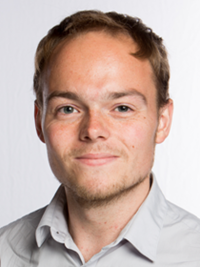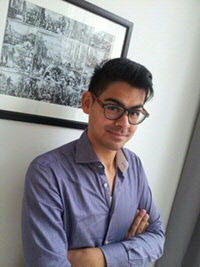Three talented early-career UG researchers appointed to top institutes abroad
Three recent PhD recipients of the University of Groningen will be able to conduct research at foreign research institutes thanks to the Rubicon programme of the Dutch Research Council (formerly the Netherlands Organisation for Scientific Research, NWO). The grants were awarded to Dr Leonie Elsenburg, Dr Dennis Prak and Dr Ruben Verwaal. The NWO Rubicon programme enables early-career researchers to acquire international research experience at a top institute abroad to help kick-start their academic careers. Elsenburg researches the risks posed by a difficult youth on health problems in later life; Prak researches smarter stock management with the help of big data; and Verwaal researches how people in the eighteenth century successfully tackled deafness and hearing differences from an integrated social and medical approach.


With a Rubicon grant, early-career researchers can conduct research for up to 24 months at a foreign research institute such as the Technical University of Munich or Harvard University. The amount of the grant depends on the chosen destination and the duration of the stay. The Dutch Research Council awards around 60 Rubicon grants per year to early-career researchers (amounting to a total value of € 7 million, divided into three rounds). The majority of the 16 researchers selected in this round will spend up to 24 months abroad. Experience abroad is an important career step for many researchers. The UG recipients were awarded grants in the first round of 2019.
The three Groningen recipients
- Wanneer leidt een moeilijke jeugd tot ziekte? [When does a difficult youth result in health problems?]: Dr L.K. Elsenburg, Faculty of Medical Sciences/UMCG -> Denmark, University of Copenhagen, Department of Public Health, 18 months. Children who grow up in difficult circumstances develop physical health problems more often when they are adults. This project provides insight into which exact circumstances pose risks, when these circumstances pose risks and whether these risks result in health problems during adolescence.
- Slimmer voorraadbeheer met Big Data [Smarter stock management with the help of big data]: Dr D.R.J. (Dennis) Prak, Faculty of Economics and Business -> Germany, Technical University of Munich, Operations & Supply Chain Management, 24 months. Traditional stock management models divide the supply chain into independent blocks that are governed in a stable and isolated manner, whereas our current business operations methods are dynamic and integrated. This research provides smarter order lines that use all available data optimally and that can also quickly ‘learn along’.
- Nieuwe blik op doofheid [A new perspective on deafness]: Dr R.E. (Ruben) Verwaal, Faculty of Arts/Erasmus MC -> UK, Durham University, Institute for Medical Humanities, 24 months. People who are deaf and hard-of-hearing often feel excluded. This makes inclusion a challenge. This research explores how people in the eighteenth century successfully handled deafness and hearing differences from an integrated social and medical approach.
The Rubicon programme is named after the river that Julius Caesar crossed before embarking on the series of victories that eventually led to the well-known phrase “veni, vidi, vici”.
More news
-
15 September 2025
Successful visit to the UG by Rector of Institut Teknologi Bandung
